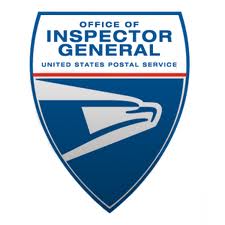 National agreements between the U.S. Postal Service and four major unions include grievance-arbitration procedures that Postal Service management, bargaining unit employees, and union representatives must follow to resolve workplace disputes, disagreements, and complaints. The Postal Service paid $97 million and $87 million in grievance settlements during fiscal years (FY) 2011 and 2012, respectively.
National agreements between the U.S. Postal Service and four major unions include grievance-arbitration procedures that Postal Service management, bargaining unit employees, and union representatives must follow to resolve workplace disputes, disagreements, and complaints. The Postal Service paid $97 million and $87 million in grievance settlements during fiscal years (FY) 2011 and 2012, respectively.
In FY 2010 we conducted an audit of grievance settlements and payments and found that management controls needed to be strengthened. As a result, Postal Service management issued additional guidance and enhanced internal controls.
We conducted this audit to follow up on prior findings. Additionally, we received two hotline complaints regarding the grievance-arbitration process, and the U.S. Postal Service Board of Governors expressed concerns over grievance costs. Our objective was to assess internal controls over grievance settlement decisions and payments. Specifically, we evaluated whether the grievance settlement decisions and payments were adequately supported and whether staff complied with established internal controls and documentation requirements.
WHAT THE OIG FOUND:
Management has strengthened internal controls, and documentation supporting grievance settlements and payments has significantly improved since our prior audit. We reviewed 600 randomly selected grievance case files from 10 districts and found that 503 (or 84 percent) contained all required documentation. However, 97 (or 16 percent) did not contain one or more of the required documents, such as written appeals, decision letters, and payment documentation. Of these, 46 did not have specific support for settlements and payments, resulting in about $3.4 million in unsupported questioned costs.
We identified various reasons contributing to unsupported payments and missing case file documentation, to include improper storage and transferring of case files and issues with grievance monitoring.
We also conducted interviews and reviewed grievance case files in response to the hotline complaints we received; however, we did not find sufficient evidence to support that there were systemic issues related to the allegations.
WHAT THE OIG RECOMMENDED:
We recommended that management issue a reminder in writing re-emphasizing the importance of adhering to the exisitng internal control guidelines for grievances.
For years we have seen grievance settlements being used to hide work hours and make budgets. For example, about two weeks ago one MPOO issued instructions to all her associate office reports that they will not exceed their clerk work hour budgets. Instead, they will cover the clerk duty assignments by doing the work themselves. This resulted in many grievances, but the grievance payouts will not appear as clerk work hours.